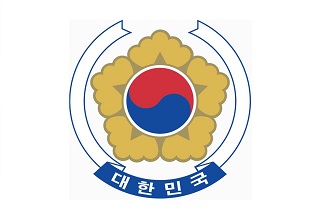Regarding the Inspection and Quarantine Requirements for the Bell Peppers from Belgium
In accordance with relevant laws and regulations of the People's Republic of China and the provisions on plant quarantine requirements for sweet peppers imported from Belgium stipulated in the agreement between the General Administration of Customs of the People's Republic of China and the Federal Agency for the Safety of the Food Chain of the Kingdom of Belgium, effective immediately, sweet peppers from Belgium that meet the following specified requirements are allowed to be imported.
I. Inspection and Quarantine Basis
1. The Biosecurity Law of the People's Republic of China;
2. The Law of the People's Republic of China on the Entry-Exit Animal and Plant Quarantine and its Implementing Regulations;
3. The Food Safety Law of the People's Republic of China and its Implementing Regulations;
4. The Protocol on Plant Quarantine Requirements for Sweet Peppers Exported from Belgium to China between the General Administration of Customs of the People's Republic of China and the Federal Agency for the Safety of the Food Chain of the Kingdom of Belgium.
II. Authorized Import Commodities
The term "sweet peppers" under this announcement refers to the fruits of Capsicum annuum or Capsicum grossum grown and processed (sorted or packaged) within Belgium.
III. Enterprise Registration
Sweet pepper cultivation bases and packaging facilities intended for export to China must be reviewed and recorded by the Federal Agency for the Safety of the Food Chain of the Kingdom of Belgium (hereinafter referred to as the Belgian side) and approved for registration by the General Administration of Customs of the People's Republic of China (hereinafter referred to as the Chinese side). The registration information should include the name, address, product details, and registration number to ensure accurate traceability in case the imported sweet peppers fail to comply with the provisions of this announcement. Prior to commencement of trade, the Belgian side shall provide the Chinese side with a list of registered entities, which will be reviewed and approved by the Chinese side before being published on the Chinese customs website.
IV. List of Quarantine Pests of Concern to the Chinese Side
1. Chrysodeixis chalcites
2. Liriomyza trifolii
3. Fusarium oxysporum
4. Tomato spotted wilt virus (TSWV)
5. Tomato brown rugose fruit virus (ToBRFV)
V. Pre-export Management
1. Cultivation Base Management
1.1 Sweet pepper cultivation bases for export to China should establish a comprehensive quality management system and traceability system under the supervision of the Belgian side, implementing Good Agricultural Practices (GAP), maintaining hygienic conditions in the base (e.g., free from pollution sources that could affect sweet pepper production), and executing Integrated Pest Management (IPM), which includes pest monitoring, chemical control, biological control, and agricultural practices as control measures.1.2 The plant quarantine measures at export-oriented cultivation bases must be implemented under the guidance of technicians with knowledge of pest control and monitoring. These technicians should undergo training provided by the Belgian side.
1.3 Export-oriented cultivation bases must retain records of pest monitoring and control measures for at least two years and provide them upon request to the Chinese side. Such records should include details such as monitoring times, names of detected pests, control measures taken, names of chemicals used during the growing season, their active ingredients, application doses, and dates of application.
1.4 Regarding Tomato brown rugose fruit virus (ToBRFV), the Belgian side shall, based on ISPM 4 principles, establish a ToBRFV-free area recognized by the Chinese side. Upon request, the Belgian side should promptly provide relevant information regarding the maintenance of this non-infected zone. If ToBRFV is detected within the non-infected zone, its status will be temporarily suspended. The Belgian side must report to the Chinese side within 48 hours and immediately initiate an emergency plan. After eradicating the outbreak and obtaining Chinese approval, the non-infected zone status can be restored. For areas without a non-infected zone, the Belgian side should conduct field surveys to confirm that the cultivation base remained free from ToBRFV during the growing season, and take representative samples for RT-PCR or real-time fluorescent RT-PCR testing before export. If the test result is positive, sweet peppers from that cultivation base cannot be exported to China.
1.5 For Chrysodeixis chalcites and Liriomyza trifolii, weekly monitoring should be conducted during the sweet pepper growing season. Effective control measures should be taken immediately if these pests are found.
1.6 For Fusarium oxysporum, at least monthly monitoring should be carried out during the growing season. If suspicious symptoms are observed, samples should be collected for laboratory testing. In case Fusarium oxysporum is confirmed, effective control measures should be promptly taken.
1.7 For Tomato spotted wilt virus (TSWV), weekly monitoring should also be conducted during the growing season. If suspicious symptoms are detected, samples should be sent for laboratory testing. If TSWV is confirmed, sweet peppers from that cultivation base cannot be exported to China.
2. Packing House Management
2.1 The processing, packaging, storage, and transportation of sweet peppers for export to China should be conducted under the supervision of the Belgian authority or its authorized personnel.2.2 The packing of sweet peppers for export to China should be completed at registered packing houses. These packing houses must ensure that raw materials come from registered cultivation bases. They, along with cold storage facilities, should maintain good sanitary conditions and have protective measures like insect-proof nets or ultraviolet lamps to prevent re-infection by pests.
2.3 During processing, sweet peppers should undergo manual sorting, screening, and cleaning to ensure they are free from live pests, plant debris, soil, and other foreign contaminants.
2.4 To maintain quality, packaged sweet peppers requiring storage should be immediately placed into storage separately to avoid re-infection by pests.
2.5 Registered packing houses or exporters should establish a traceability system ensuring that sweet peppers destined for China can be traced back to their registered cultivation base. Records should detail processing and packaging dates, source cultivation base name or registration number, quantity of sweet peppers, export date, export quantity, destination country, container number, and seal number, and these records should be kept for at least two years.
3. Packaging Requirements
3.1 Packaging materials should be clean, unused, and meet China's phytosanitary requirements. If wooden packaging is used, it should comply with ISPM 15 standards.3.2 Each packaging box should bear product name, exporting country, cultivation base name or registration number, and packing house name or registration number in Chinese or English. Each pallet should be marked "Exported to the People's Republic of China" in Chinese or English. If pallets are not used (such as for air cargo), each packaging box should carry the same label.
3.3 Containers loaded with sweet peppers for export to China should be in good sanitary condition and sealed. Upon arrival at the Chinese port of entry, the seals should remain intact.
4. Pre-export Inspection
4.1 The Belgian side should conduct pre-export inspections on sweet peppers bound for China to ensure they are free from quarantine pests of concern to the Chinese side.4.2 During the first two years of trade, the Belgian side should inspect each shipment at a 2% sampling rate. If no phytosanitary issues arise within those two years, the sampling rate may be reduced to 1%.
4.3 If any Chinese-concerned quarantine pests, soil, or plant debris are detected, the entire shipment cannot be exported to China. The Belgian side should immediately suspend exports of sweet peppers from the affected cultivation base and packing house until the cause is identified and effective corrective actions are taken. Records related to such incidents should be retained and provided to the Chinese side upon request.
V. Phytosanitary Certificate Requirements
For goods that have passed the pre-export quarantine inspection, the Belgian side should issue a phytosanitary certificate and include an English declaration stating: "The consignment complies with the requirements specified in the Protocol of Phytosanitary Requirements for Export of Bell Peppers from Belgium to China, and is free from quarantine pests of concern to China."
VI. Entry Inspection and Quarantine Procedures and Disposal of Non-compliant Goods
Upon arrival at the Chinese port of entry, China Customs will carry out inspection and quarantine procedures in accordance with the following requirements:
1. Verification of Certificates and Markings
1.1 Verify whether the phytosanitary certificate conforms to the provisions set out in Section (5) of Article V of this Announcement.1.2 Check whether the markings on packaging boxes and pallets comply with the regulations stipulated in Section (3) of Article V of this Announcement.
2. Entry Inspection and Quarantine
In accordance with relevant laws, administrative regulations, rules, and other provisions, imported sweet peppers will undergo inspection and quarantine. If they meet the required standards, they will be allowed to enter China.
3. Disposal of Non-conforming Goods
3.1 If it is discovered that the shipment originates from unapproved cultivation bases or packing houses, the entire batch will not be permitted to enter China.3.2 If quarantine pests of concern to China, or any other quarantine pests, are detected, or if soil or plant debris is found, the batch will be subject to return, destruction, or appropriate pest eradication measures.
3.3 If the shipment fails to meet the National Food Safety Standards of China, it will be subject to return or destruction.
3.4 In the event of any of the above non-conformities, China will promptly notify the Belgian side. Depending on the situation, imports from the related cultivation base(s) and/or packing house(s) may be suspended. The Belgian side must investigate the cause of the non-conformity and implement corrective actions to prevent recurrence. Based on the results of these improvements, China will decide whether to lift the suspension measure.
This Announcement hereby serves as notification.
General Administration of Customs of the People's Republic of China
January 19th, 2024




